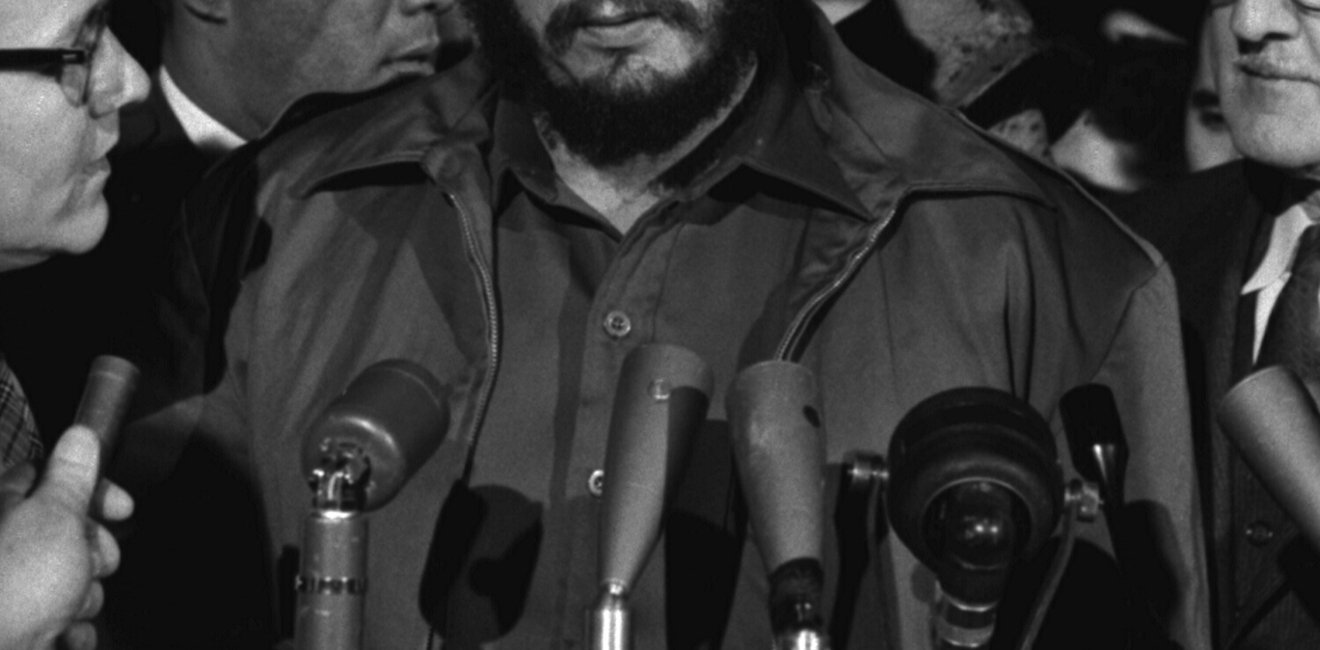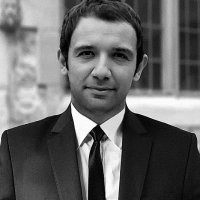Party- and state-level operatives in Eastern Europe struggled to comprehend the ouster of Cuban strongman Fulgencio Batista and the rise of Fidel Castro in 1958-1959 – in part because they depended on information provided by Cuban communists, individuals unaffiliated with Castro’s revolutionary movement and who often shared contentious views of the Castro’s ideological and political underpinnings.
A new set of documents, released on the Wilson Center Digital Archive in conjunction with the publication of my book Our Comrades in Havana, illustrates the complex ideological, operational, and political environments of the early phase of the Cuban revolution. These documents also depict the Eastern European communists struggling to make sense of what was happening on an island far, far away from them.
Initially, the Soviet Union and its East European allies had a lukewarm attitude toward the Cuban events. They drew upon the assessments of the local Communist Party (Partido Socialista Popular, or PSP), which compared Castro’s anti-Batista campaign to an “adventure.” Indeed, some of Cuba’s most critical socialist observers deemed Castro’s first steps into repositioning the revolution to the left as representing an attempt to develop a utopian-romantic “ideal type of socialism,” as a Yugoslav Foreign Ministry aide memoire argued.[1]
For his part, Fidel Castro offered varying explanations for the way his rebel forces turned to the left in the months after entering Havana. In April 1960, the Cuban leader elucidated the pragmatic aspect of the revolution’s gradual radicalization in a conversation with the Yugoslav ambassador.[2] Later, during his visit to Eastern Europe in 1972, speaking with Hungarian communist party chief János Kádár in June, the Cuban Líder Máximo admitted that the revolution was not yet socialist when Batista was driven out of power.[3] Similarly, a week later, the Cuban leader shared with his Czechoslovak counterpart, Gustáv Husák, that the July 26 Movement (M-26-7) he led into Havana lacked a communist program.[4]
The Partido Socialista Popular, with its direct contacts with the Communist Party of the Soviet Union (CPSU) and the “fraternal” East European Communist Parties, seized the task of wooing the Soviets and its allies. The Cuban communists asked the Soviets for help exposing the government's “terror” and the interference of “American imperialism” in Cuba’s affairs. The CPSU’s Central Committee agreed to support the fight of the Cuban people in the press, radio, and public organizations in the closing months of 1958.[5] As a result, from the onset, the PSP was thought to be the legitimate organizer of Cuba’s working class and peasants in the struggle against the “local oligarchy” and “American imperialism,” as the Bulgarian foreign ministry observed.[6]
In its attempt to explain the differences between the communist PSP and Fidel’s M-26-7, the Hungarian Foreign Ministry delved into an important aspect of the relations between these two political groups, namely their tactical differences.[7] Unlike Fidel Castro, the Cuban communists were convinced that the revolution must be waged peacefully. The PSP therefore refused to participate in Castro’s attack on the Moncada Barracks on 26 July 1953. At this early stage, the Budapest envoy’s analysis concluded that the new leadership in Havana attempted to distance itself from the communists due to their lack of cooperation with the M-26-7.
Seeking to bridge the differences between the two camps, a Hungarian security services agent offered a different interpretation of the relations between the M-26-7 and the PSP.[8] The Hungarian operative contacted various PSP leaders, who offered their alternative version of the revolutionary role of the Party. According to their versions of the events, the Cuban communists remained in the background for tactical reasons, not because of their weaknesses. In their interpretation, Castro’s initiative would not have succeeded if they had not organized and led a broad popular resistance movement.
While expressing sympathy for the M-26-7 in the first months of 1959, Soviet propaganda did not offer any personal praise for Fidel Castro. Similarly, as a Czechoslovak Communist Party report demonstrates, the developments in Cuba in March 1959 were still referred to as “bourgeois-democratic” revolution, cutting it short from being the sweeping transformational process that would warrant the Socialist states’ full support.[9]
Nevertheless, after talking with the member of the PSP's Central Committee, Severo Aguirre, Prague’s Communist Party leaders saw a glimmer of hope for the further radicalization of the revolution: the fact that the “bourgeois” leaders of the revolutionary army, the Castro brothers, and Ernesto “Che” Guevara, relied on the people’s army, on which the communists had significant influence.
As 1959 drew to a close, East European officials who began to pay visits to Havana received more detailed information, and their analyses changed accordingly. Czechoslovak party cadres visiting Cuba in 1960 delivered a very optimistic outlook.[10]
To verify the situation on the ground, Prague dispatched delegates to the Eighth Congress of the PSP in August 1960. Speaking at the gathering, the Cuban communist leader, Blas Roca Calderio, effectively offered his stamp of approval to Castro before the Czechoslovakian guests, recognizing him as a “new phenomenon in Latin America’s history.” In their comments, the Czechoslovaks demonstrated satisfaction with the deepening influence of the Cuban communists within the country’s socio-political transformations, which held the serious potential to increase the significance of the Cuban revolution in the eyes of the Soviet Union and the other Socialist states.
Connected Sources
Service for Foreign Political Affairs, 'A Reminder about Cuba and Yugoslav-Cuban Relations (On the Occasion of the Reception of the Second Secretary of the Communist Party of Cuba and the Minister of National Defense, Raul Castro)', 20 February 1974
‘Note on the Conversation between Ambassador Zvonko Grahek and Prime Minister Fidel Castro at a Dinner at Minister Roa’s, April 26, 1960’, 18 May 1960
Minutes from the Meeting of the Political Committee on June 13, 1972
Explanatory Report on the Visit of the Chairman of the Cuban Revolutionary Government and First Secretary of the Communist Party of Cuba, Comrade Fidel Castro, and His Entourage to Czechoslovakia, June 1972
Untitled Note on a Request for Assistance from the Socialist Party of Cuba to the Central Committee of the CPSU, December 1958
Embassy of the Republic of Bulgaria, Havana, 'Relations Between Cuba and the USA - Situation And Perspectives, Havana, 1978', 20 October 1978
Tibor Zádor, 'The Events in Cuba and the United States', 21 January 1959
[1] “Podsetnik o Kubi i jugoslovensko-kubanskim odnosima” [A reminder of Cuba and Yugoslav-Cuban relations], 20 February 1974, Arhiv Jugoslavije (Archives of Yugoslavia), Belgrade, [AJ], KPR I-5-b/61-3, p. 1; 4.
[2] Memcon, Zvonko Grahek - Fidel Castro, 26 April 1960, AJ, KPR, I-5-b/61-1, p. 3.
[3] See “Jegyzőkönyv a Politikai Bizottság 1972. junius 13-án tartott üléséről” [Minutes of the meeting of the Political Affairs Committee of 13 June 1972], 13 June 1972, Magyar Nemzeti Levéltár (National Archives of Hungary), Budapest [MNL], M-KS, 288f. 5/583, p. 2 [132 R].
[4] See "Důvodová zpráva o návštěvě předsedy kubánské revoluční vlády а I. tajemníka KS Kuby s. Fidela Castra a jeho doprovodu v ČSSR" [Explanatory memorandum on the visit of the Prime Minister of the Cuban Revolutionary Government and the First Secretary of the Cuban Communist Party, Comrade Fidel Castro, and his entourage to the Czechoslovak Socialist Republic], Národní Archiv České Republiky (National Archives of the Czech Republic), Prague, [NAČR], KSČ-ÚV 1945-1989, Praha - Gustáv Husák, k. 376, p. 4.
[5] [Undated document], c. 1958, NAČR, KSČ- ÚV-100/3, svazek 107, arch. jednotka 344, p. 1 [60].
[6] D. Linkov, “Otnosheniyata mehzdu Kuba i SASht - sŭstoyanie i perspektivi” (Relations between Cuba and the United States - state and prospects), 20 October 1978, Diplomaticheski Arhiv na Ministerstvoto na Vŭnshnite Raboti na Republika Bŭlgariya (Diplomatic Archive of the Ministry of Foreign Affairs of the Republic of Bulgaria), Sofia, [DAMvNR], 1979, op. 35, d. 107, a. e. 1900, p. 4 [92].
[7] Tibor Zádor, “A kubai események es az Egyesült Államok” [Events in Cuba and the United States], p. 21 January 1959, MNL, XIX-J-1-j Kuba, TÜK, 1945-64, 5/b, 2d, p. 3.
[8] Miklós Abonyi, “Jelentés. Budapest, 1961 július 28” [Report. Budapest, 2 July 1961], Állambiztonsági Szolgálatok Történeti Levéltára (Historical Archives of the State Security Services), Budapest, [ÁBTL], 3.2.5, O-8-246, 2 rész, p. 2 [36].
[9] “Záznam o rozhovoru se s. Severo Aguirre, členem PB UV Lidové soc. strany Kuby” [Record of a conversation with Comrade Severo Aguirre, a member of Politburo of the Central Committee of Cuba’s People’s Socialist Party], 10 March 1959, NAČR, KSČ-ÚV-100/3, sv. 107, a. j. 344, pp. 2-3 [70-71].
[10] “Informační zpráva delegace ÚV KSČ z VIII. sjezdu Lidové socialistické strany Kuby” [Information report of the delegation of the Central Committee of the Czechoslovak Communist Party to the 7th Congress of the People’s Socialist Party of Cuba], 16 September 1960, NAČR, ÚV KSČ, Antonín Novotný – Zahraničí, Karton 121, Komunistická strana Kuby, p. 2.







